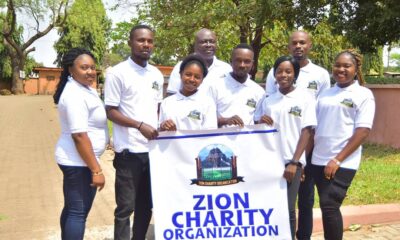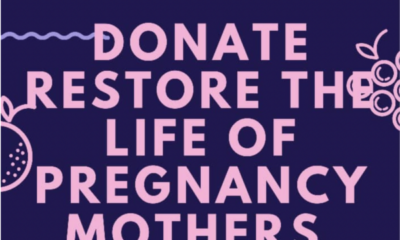Features
“We don’t turn children away” Rachel Alaje Shares Her Experience Running an Orphanage in Nigeria
In Nigeria, there are roughly 8.6 million orphaned children, many of whom live in places such as bridges, railway stations, and markets in different parts of the country. These homeless children account for a large percentage of the 13.2 million Nigerian children who are out of school. For many Nigerians, taking these children off the streets and ending child abuse is a wish that repeatedly pummels their heart, a dream they nurse but want to birth only when they have enough money or become someone big. A fantasy that may or may not eventually be made into reality.
This is not the case for Rachel Alaje of Rachels Homes.
Fueled by their desire to cater to children who have no family and emboldened by the encouragement of friends and church members, Rachel birthed Rachels Homes and has catered to over 254 children through the many years of operation.

Rachel Alaje of Rachels Homes
One child. And another… And a home
In 1999, living in a one-bedroom apartment, Rachel took in a female child whose parents had died and had no one to take care of her. Then she took in a boy, an orphan. Then another. And another. One orphan at a time. Being an orphan herself, it was easy for Rachel to wear the shoes of children who lost their parents at a tender age and had no other family member who was willing to take care of them, “I saw myself in them and I knew I had to help”. After a while, her friends and church members encouraged her to start her orphanage home fully and register it. This, she did in 2010. Rachels Homes was birthed.
Since then, she has gone on to establish Rachels Homes in three different locations: Benue state, Abaji, Abuja, and Kurudu, Abuja – the headquarters. Kurudu is in Abuja city while the homes in Abaji and Benue state are situated in remote villages where there are a lot of abandoned children and a lack of basic resources.
As a reverend, placing her trust in God was important to Rachel if she wanted to run the home effectively and get the finances to give these orphans a good life. “I know God is with Rachels Homes and my strength comes from God. So far, He has been with the home and has always helped me.”
Sometimes, this help comes in the form of strangers walking into the home with cartons of food and provisions, books, clothing items, and toiletries. Other times, this help comes in the form of donations. Many times, this help comes in forms of visitations and people sharing their special moments – like birthdays, anniversaries, and so on – with the kids. All the time, Rachel’s joy is that the children are filled with love and are well catered to. “The children feel so loved and they are always happy. Whenever I visit them, they all scream ‘mummy’ and rush to hug me. They never fight, they are so cordial and respectful and whenever I look at them, I say ‘yes! God is here’. This makes me so happy,” she says.
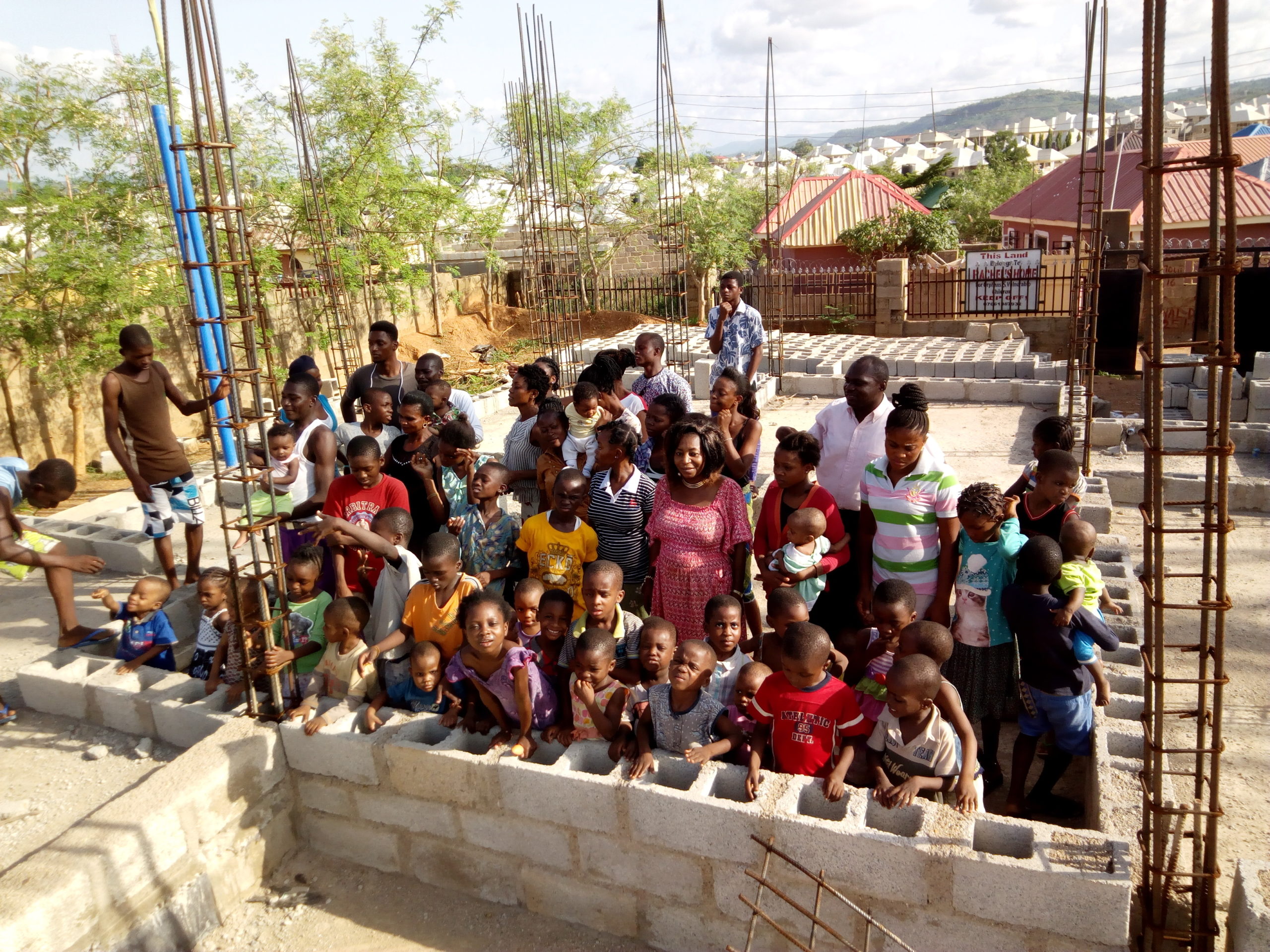
The joys of motherhood
“I have joy, fulfillment, and happiness when I speak with the kids. Many of them are not eager to leave and I’m overwhelmed with love. I’m happy I’ve saved many lives.”
Rachel Alaje is a mother to many children and that brings her fulfillment. “This is a complete handwork of God,” she said, smiling hugely.
Every child is a blessing
“We don’t turn children away because every child is a blessing. Anyone can reach out to us or bring a child and we accept with open arms. Sometimes, these children have relatives – like their grandma or aunties or uncles, but when they come, they say ‘the mother has died, or the mother dumped them and ran away and we cannot take care of the child’. Sometimes, these family members are so poor that when they bring such children, they wouldn’t come with diapers or clothing or food or anything for such a child. Still, we accept them and welcome them into our home. The only condition is that they must come to check on the child monthly.”
But the kids are not just accepted without any background or medical check-up, “when a baby is brought, we take the baby to the hospital for a thorough medical check-up. If they have any curable disease, we foot the bill or ask the family members to do so.” Rachel also works with the police social welfare department (SDS) in Abuja for all proper documentation.
But what happens if those family members decide to come back for their children? “We give them back their child once they sign all necessary documents that prove they are family. When you bring a child to us, there are documents we give you to fill, so when you come for the child, you must present the documents and your current location. We also monitor the child’s progress and how well the child is treated.”
Presently, Rachels Homes has about 150 children across the three homes in Benue, Abaji, and Kurudu. Most of the children are between the ages of 0 – 16 months. However, they do not accept children older than 5 years of age. “We have some rules and policies and most times, it is not easy to manage and teach children who join us after the age of 5,” Rachel says. The children are taken care of for as long as possible. When they go to the universities (funded by Rachels homes), the boys are gotten an apartment off-campus. This, they share with other boys. But the girls remain in the home while schooling and until they get married. So far, many of the kids have graduated from universities, and are married. School-age children are in school, and even the one-year-olds are learning.
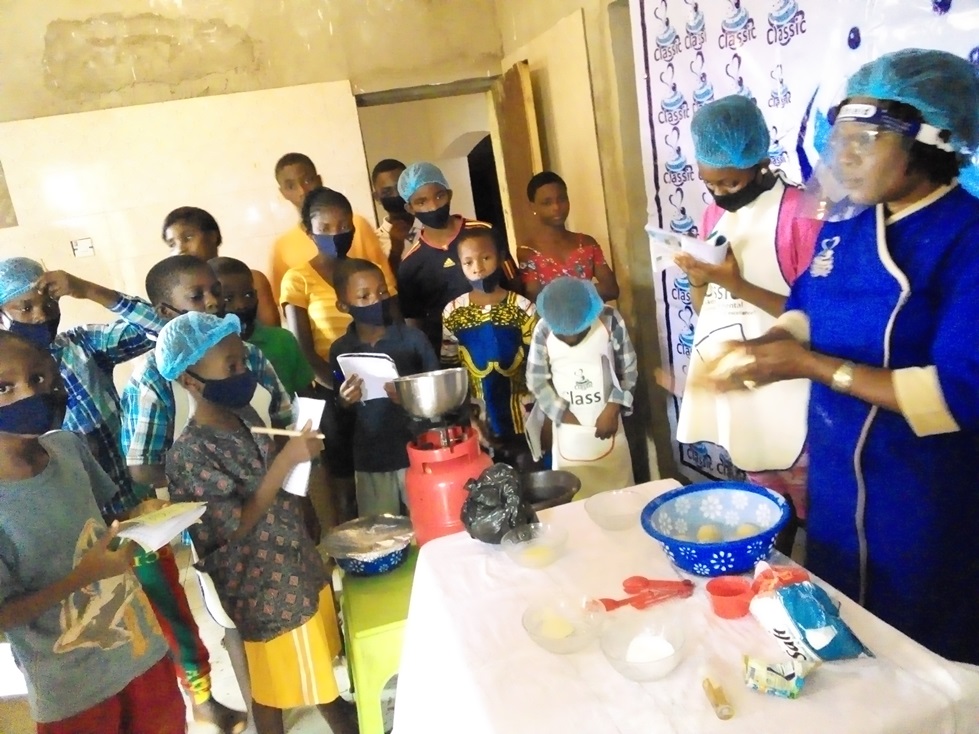
The daily activities of Rachels Homes
At the home, the kids wake up by 5:30 in the morning and have their morning prayers until 6:30 am. Then they all have their baths and get ready for school. By 7:30 am, they are off to school. There’s a primary school right in the home building where the little kids attend. The older kids go to a government secondary school. By 2:00 pm, it is time for lunch. The younger kids eat in the premises, while the older kids have their food taken to their school. By 3:00 pm, they will all be back from school. From 3 – 5:00 pm, they have their siesta and from 5 – 6:00 pm, they all play sports, knit, bake, or any other activity they may be interested in. By 6:30, it’ll be dinner time and evening prayer is by 8:30 pm. 9 pm – light off. The children are also taught skills like baking cake, soap making, perfume making, shoemaking, and so on.
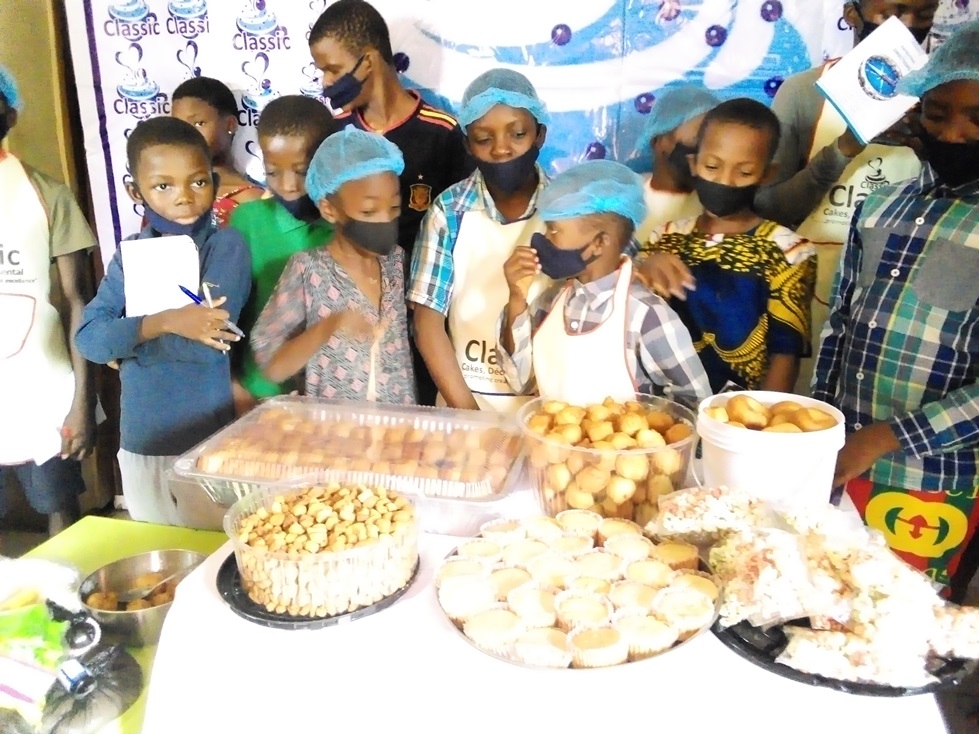
Rachels Homes has a staff strength of 18, comprised of cooks, cleaners, receptionists, nannies, auxiliary nurses who are all educated – except the cleaners – and trained enough to know what meals to cook for the kids and how to cater to their needs.
The bumps and hurdles of running a home
Just like every other home, Rachels Homes has its fair share of bumps and hurdles. For Rachel, getting finances to run the NGO is the biggest challenge she faces, “Sometimes when we ask the kids what they feel like eating, they mention things we do not have and it pains me. Many times, we run out of their daily supplies: groceries, toiletries, beverages, baby food (Nan 1), pampers. Sometimes, there will be huge supplies of pampers for the babies but before you know it, it will finish and we will be back to square one. The worst is when schools are about to resume and we have to pay their school fees.”
Before the lockdown, 18 children from the home gained admission into secondary school, and 3 children got accepted into the university. Paying their fees was tough for Rachel. “It was so challenging, financially, and we were flustered. When you pay for a child and don’t pay for another immediately, the other child begins to feel bad,” she said.
But there are little blessings that Rachel does not fail to share, “there was a day when all toiletries had finished – no toothpaste or bathing soap or toilet papers. We were still thinking of what to do when someone just showed up with packs of toothpaste and soap.”
Since the pandemic started, Rachels Home has received fewer visitations, “Before, people would come, play with the kids and make them feel good, this has stopped now.” Rachel said. But it isn’t only the visitations that have stopped, donations have also taken a drastic nosedive, “Before the pandemic, we could call a few people and they will answer us, now, everybody is broke and the responses are no longer favourable.”
Even though Rachels Home is taking care of Nigerian kids, they receive no financial support from the government, agency or organisation. “We are exempted from paying tax, but we do not get any financial support from the government.”
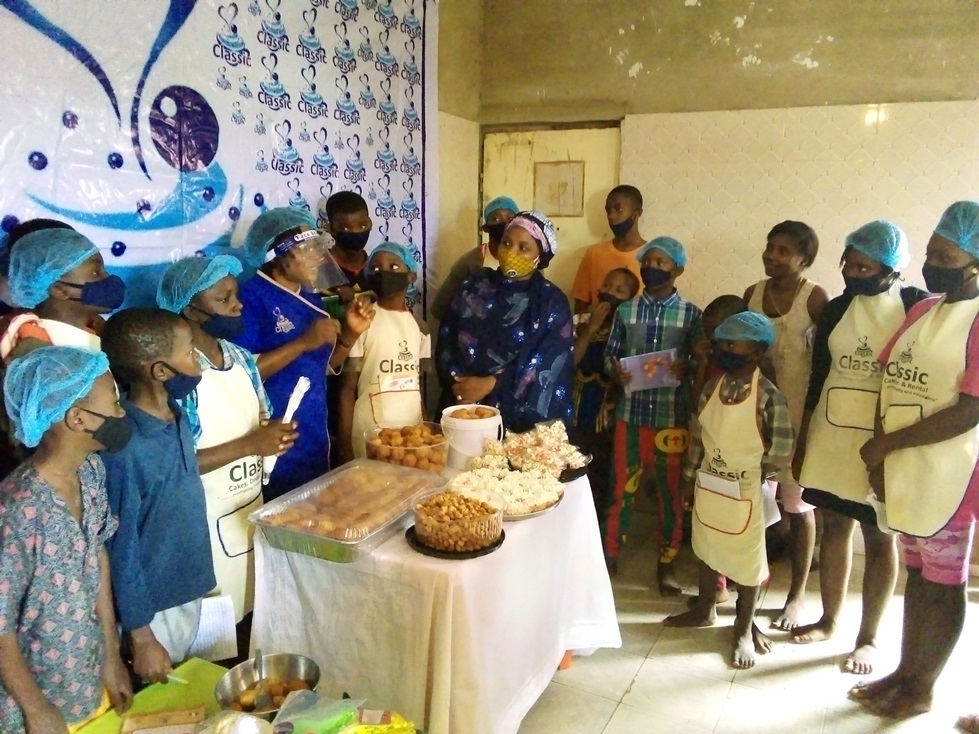
Rachel needs you… and you
“We need people to support us. We are in need of daily supplies – groceries, beverages, toiletries, body cream, general things people use every day, beddings, clothing, pampers, babies food (Nan 1), generators, and so on. Monetary donations are also very important to the home since they need to pay fees and salaries, and see to the daily run of the organisation. You can reach out to the home to make donations or to visit the children.


